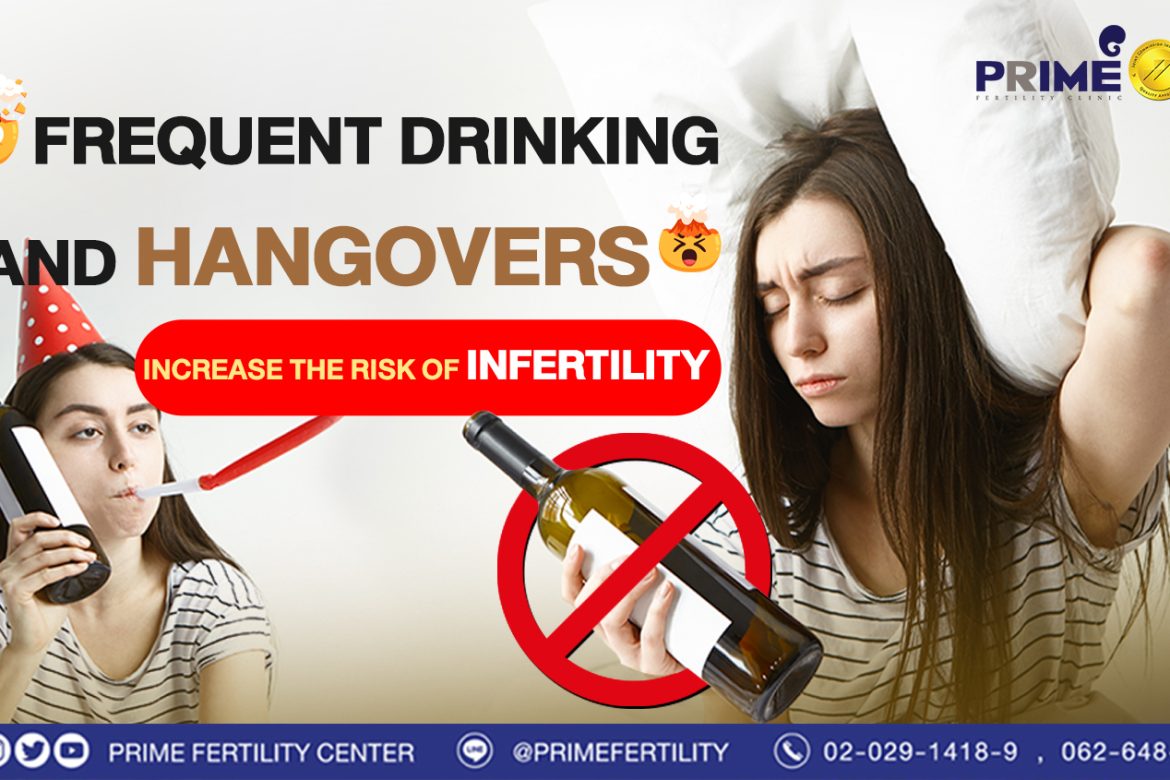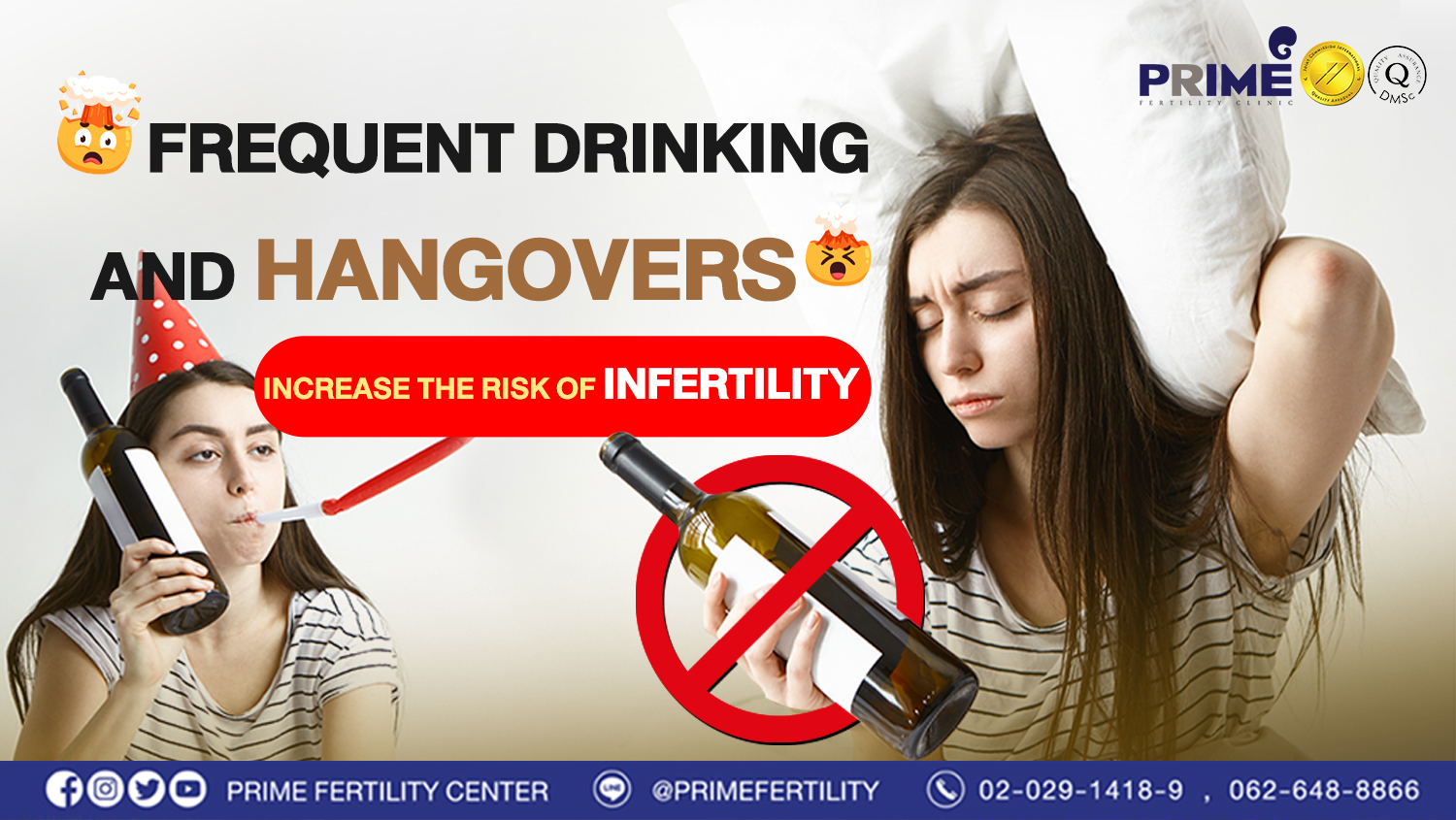A new year celebration is coming. You must have long list of parties, don’t you? It can’t help if you can’t avoid fancy drinks, a big feast, and all-night parties.

However, if you are planning to have a baby next year, you must restrain yourself as some behaviors can lead to infertility. How to celebrate the new year and be ready to have a baby next year, let’s see.

1. Drinking in moderation – Not more than 14 units per week. This equals 5.5 pints of beer (2.6 L.). Not only too much drinking can cause overworked liver, but also cancers. It even 50% decreases the chance of having a child.

2. Less smoking and inhaling smoke – For people planning for a child, you should stop smoking. Cigarettes can negatively affect the health of the smoker, people around, and even the baby in the womb. Any party with cigarettes is recommended to avoid.

3. Eat less sweets – Sweets can cause obesity and also impact women’s egg cells. You should avoid any party with too many sweets. Reducing sugar results in an increase in pregnancy rates from 17% to 83%.

4. No more all-night parties, irregular sleep patterns, and sleeping late – This behavior can make human body systems malfunction. It will eventually impact hormones that cause infertility. Less party, have enough sleep.

Partying may be a joy for many people, but it’s also a good idea to drink or live in moderation. Especially for those who want to have children, you need to take care of your physical health to prepare for pregnancy. For those who are having problems or want to consult about infertility, you can come and consult with us at Prime Fertility Clinic.
References: “The UK Chief Medical Officers’ Alcohol Guidelines Review” and “The American Society of Reproductive Medicine” (ASRM)
–
Reference: Prime Fertility Center Co., Ltd.
If you’re interested in our ICSI program, kindly find more details as below website: https://www.primefertilitycenter.com/en/package-promotion-2/foreign-couple-package-2021/
ICSI (Intracytoplasmic Sperm Injection)
ICSI (Intracytoplasmic Sperm Injection) is an in vitro fertilization procedure with the laboratory technology. Both IVF and ICSI are comprising of similar procedures. But the difference is how sperm will fertilize an egg. In ICSI program, only one best sperm cell will be selected then injected directly into a fully matured egg. Patients will be prescribed some hormonal medications. Stimulating ovaries to produce several eggs. ICSI can make a pleasant fertilization rate. As well as reduces some fertilization problems or abnormalities caused from egg and sperm. For examples: multiple sperm fertilize an egg, sperm cannot penetrate the egg. The combined egg will transform to be an embryo after fertilization. Next, the embryo will be raised and will grow up among the appropriate environment inside a laboratory. Finally, the embryo will be transferred to the uterine cavity in order to implant then develop to be the fetus later on.
Couples who should receive the infertility treatment with ICSI program:
- Female’s age more than 35 years
- Stenosis for both sides of the fallopian tube
- Severe Endometriosis
- Ovarian hormone dysfunction for examples: Chronic Anovulation, PCOS (Polycystic Ovary Syndrome)
- Severe sperm abnormalities including sperm morphology, sperm count, sperm motility
- Male who is sterile or had a vasectomy but the body can still produce sperm. To extract sperm under this limitation, a surgical procedure will be performed such as PESA, TESA, TESE.
- Couples who have failed from every previous IVF cycle
- Couples who prefer to screen the embryo’s genetic diseases
Frozen Embryo Transfer (FET)
Frozen Embryo Transfer (FET) is the process of embryo transplantation into the uterus after thawing frozen embryo. The patient can choose the FET date by convenient time e.g. 1-2 months after the fertilization process. The evidence supports FET in women more than 35 years of age are providing more pregnancy rates than FRESH embryo transfer.
Due to the inducing medication that the female takes to develop multiple of healthy ovum, the huge amount of hormones generated will weaken endometrium, consequently lessening the success rate of the transfer regardless of the perfect condition of embryos. Given the circumstance, the embryo transfer right away after ovum retrieval (FRESH transfer) may not be an effective protocol.
Moreover, a number of studies from various institutes found that FET offers better and higher chance of pregnancy than the FRESH transfer because endometrial tissue is in more proper state for embryos. Therefore, the doctor will consider which protocol fits best for each couple individually.




